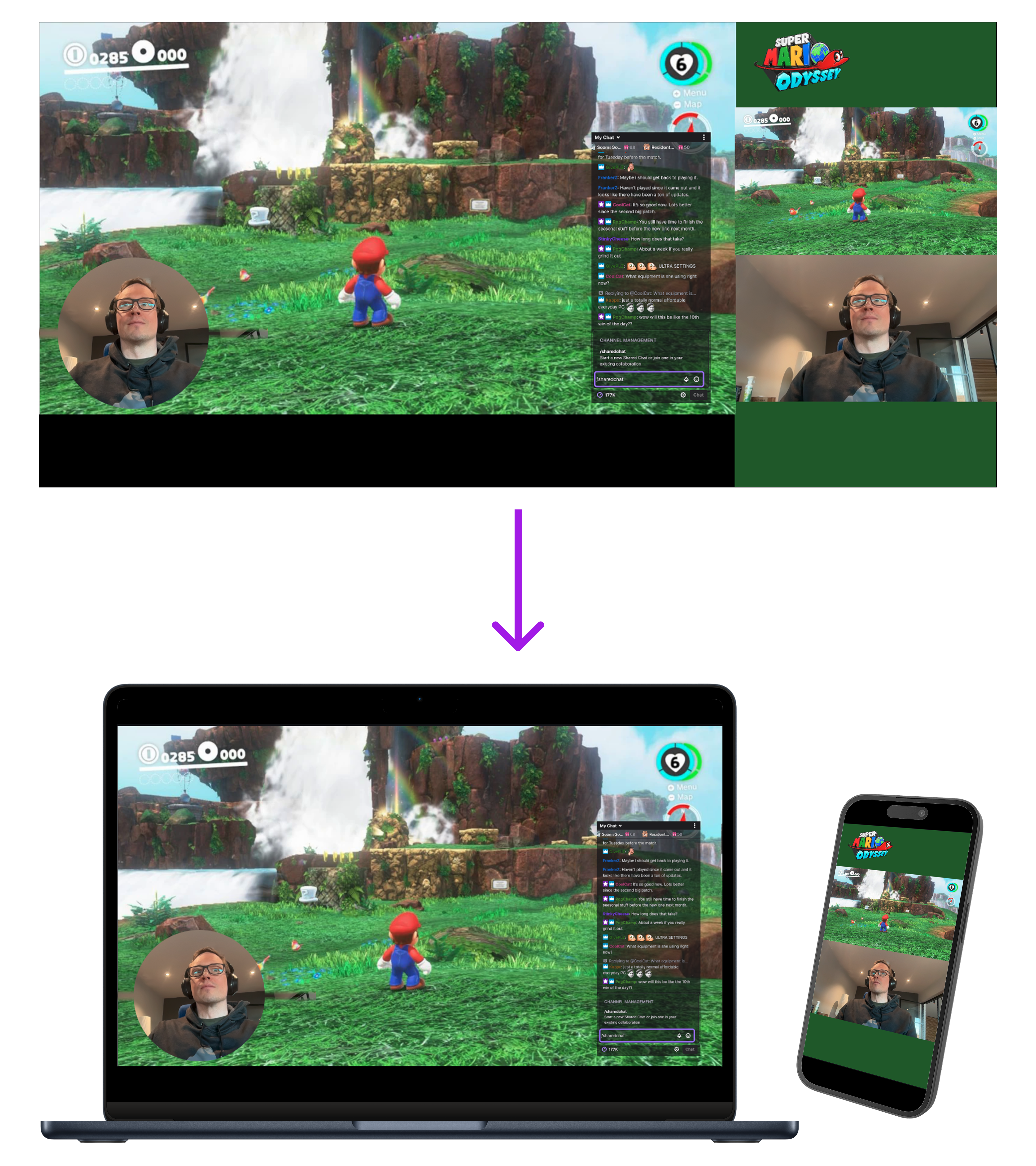
Dual HD
Dual Format Streaming: Simultaneous Horizontal and Vertical Live Video
Dual format streaming is a method for broadcasting horizontal and vertical video at the same time. The Dual HD specification provides frame sizes that make this straightforward, so creators and broadcasters can deliver content to platforms with different orientation needs in a single stream. For example, horizontal video works best for Twitch and YouTube, while vertical video suits TikTok and Instagram. Dual format streaming is a fundamental shift for platforms that need both: a horizontal player on desktop and a vertical player on mobile.
For Viewers
Dual format streaming improves the viewing experience across devices by matching the video orientation to the screen. It removes the letterboxing that happens when horizontal video is shown on a vertical display, or the other way around.
For Streamers and Broadcasters
Dual HD is straightforward to use and does not require new broadcasting software. An intermediate server handles the cropping and forwarding of streams to each destination, so both orientations are delivered correctly. Any software that supports custom frame sizes, such as OBS Studio, can be used with Dual HD.
Scope of This Standard
Dual HD defines frame sizes only. It does not set limitations for codecs or other technical details. Modern codecs like HEVC or AV1 are recommended for efficiency, since the combined frame size is larger. To use Dual HD in practice, a transcoding service is needed to crop and forward the stream to each platform. A reference server implementation is available on GitHub.

Specification v 1.0
Frame sizes and image templates
Dual HD 1760
Video formats: 720p horizontal, 480p vertical.
- Frame size (w, h): 1760x854
- Horizontal video
- Size (w, h): 1280x720
- Position (x, y): 0, 0
- Vertical video
- Size (w, h): 480x854
- Position (x, y): 1280, 0
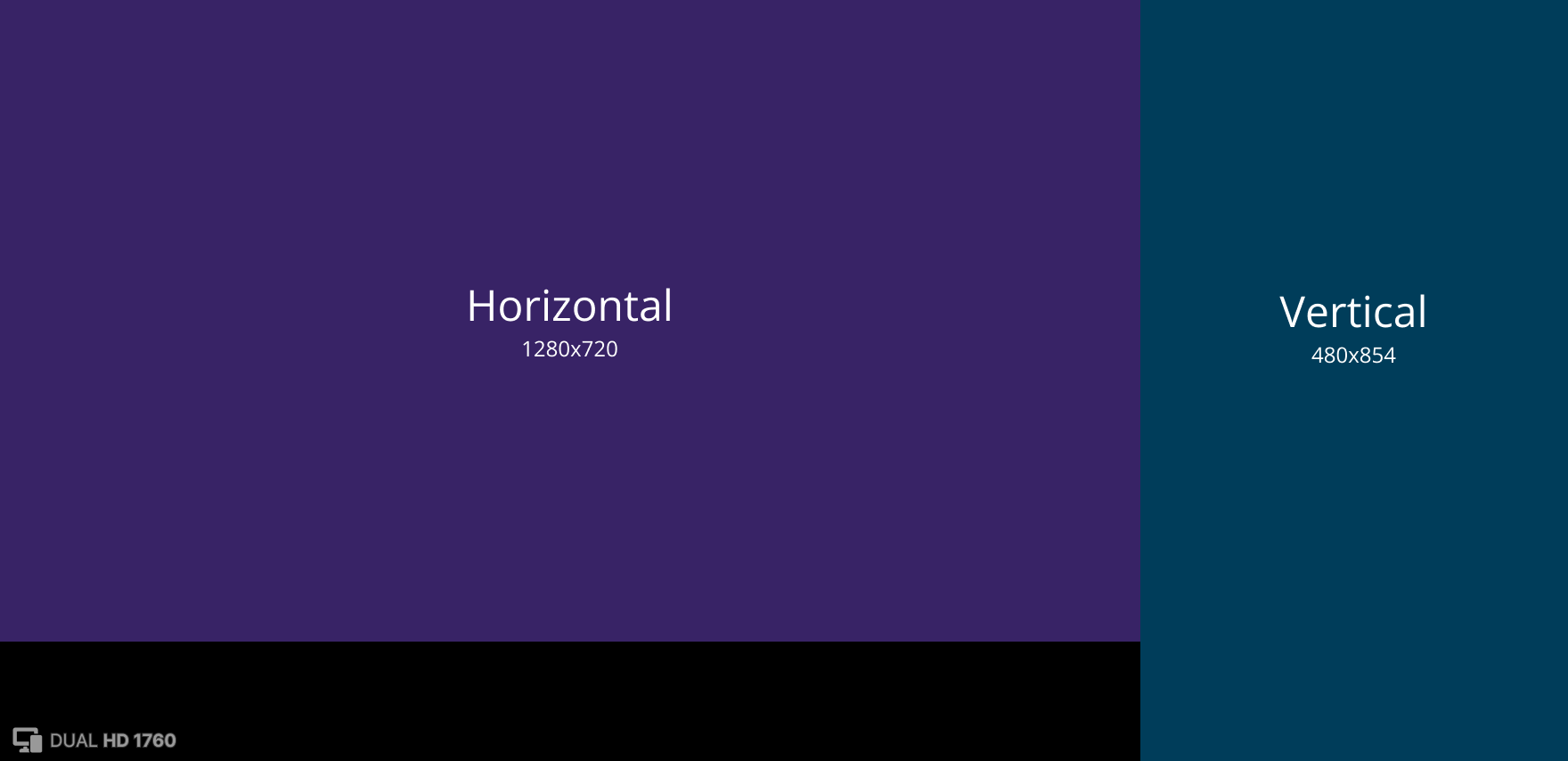
Dual HD 2000
Video formats: 720p horizontal, 720p vertical.
- Frame size (w, h): 2000x1280
- Horizontal video
- Size (w, h): 1280x720
- Position (x, y): 0, 0
- Vertical video
- Size (w, h): 720x1280
- Position (x, y): 1280, 0
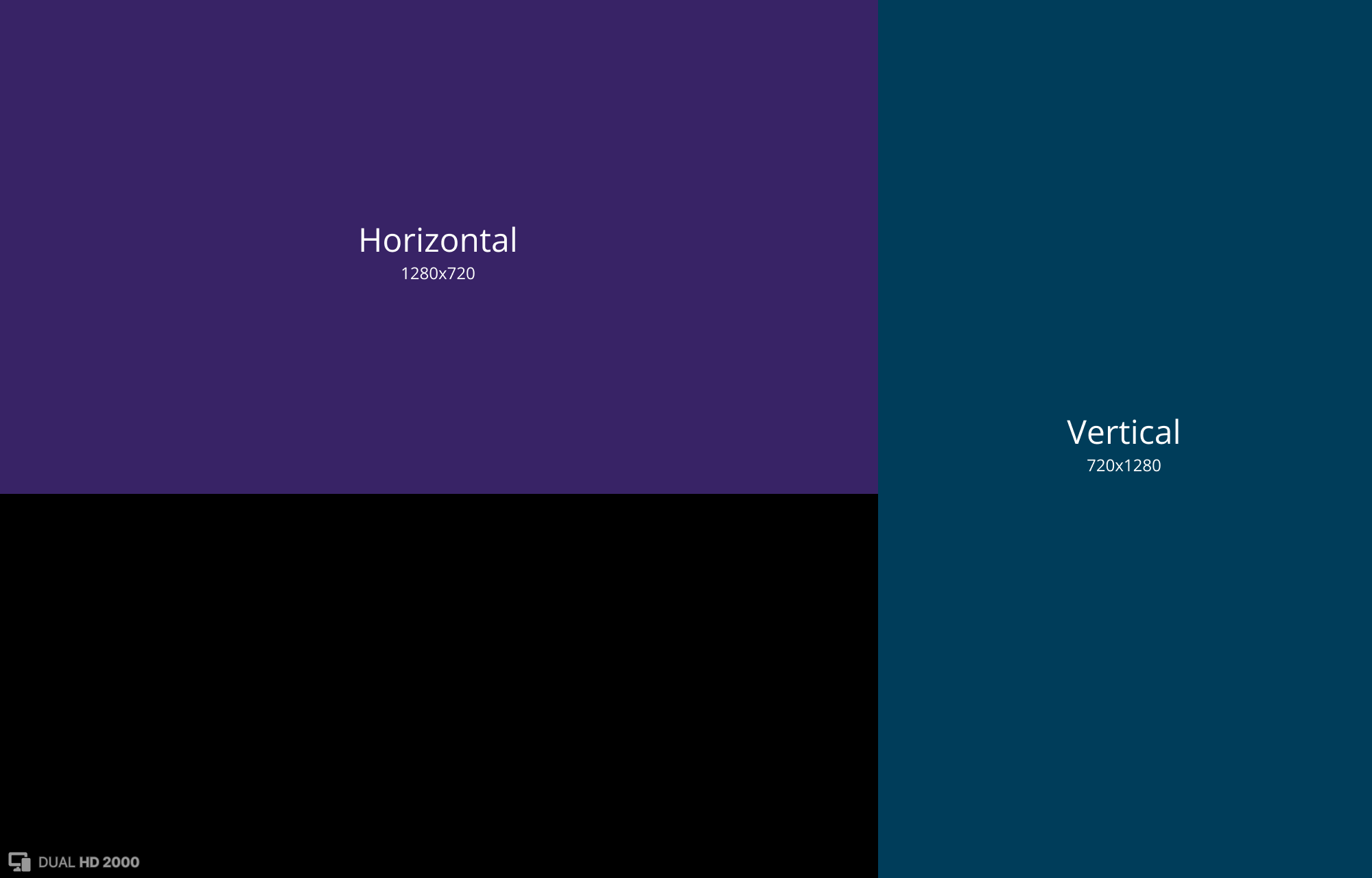
Dual HD 2640
Video formats: 1080p horizontal, 720p vertical.
- Frame size (w, h): 2640x1280
- Horizontal video
- Size (w, h): 1920x1080
- Position (x, y): 0, 0
- Vertical video
- Size (w, h): 720x1280
- Position (x, y): 1920, 0
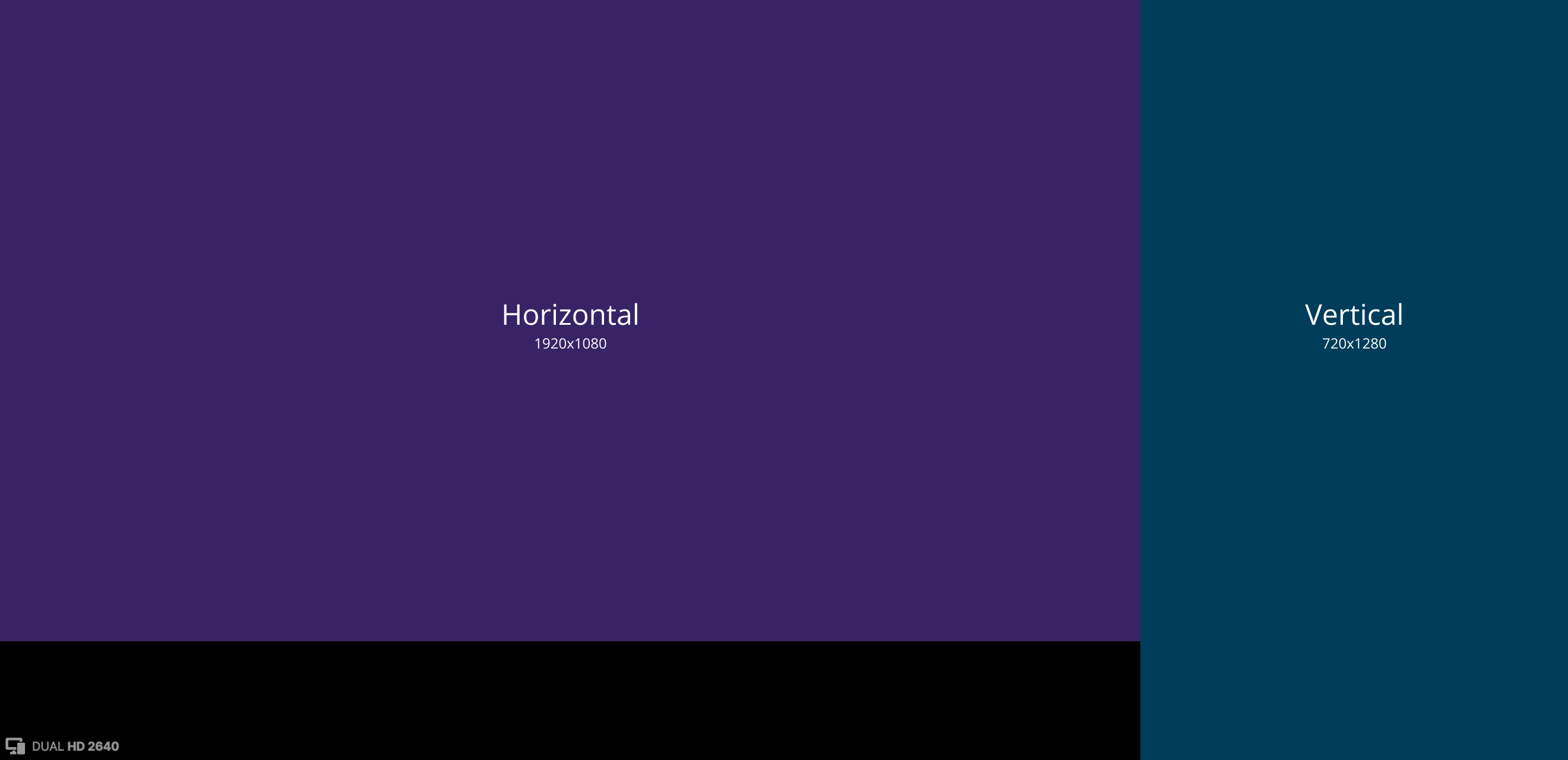
Dual HD 3000
Video formats: 1080p horizontal, 1080p vertical.
- Frame size (w, h): 3000x1920
- Horizontal video
- Size (w, h): 1920x1080
- Position (x, y): 0, 0
- Vertical video
- Size (w, h): 1080x1920
- Position (x, y): 1920, 0
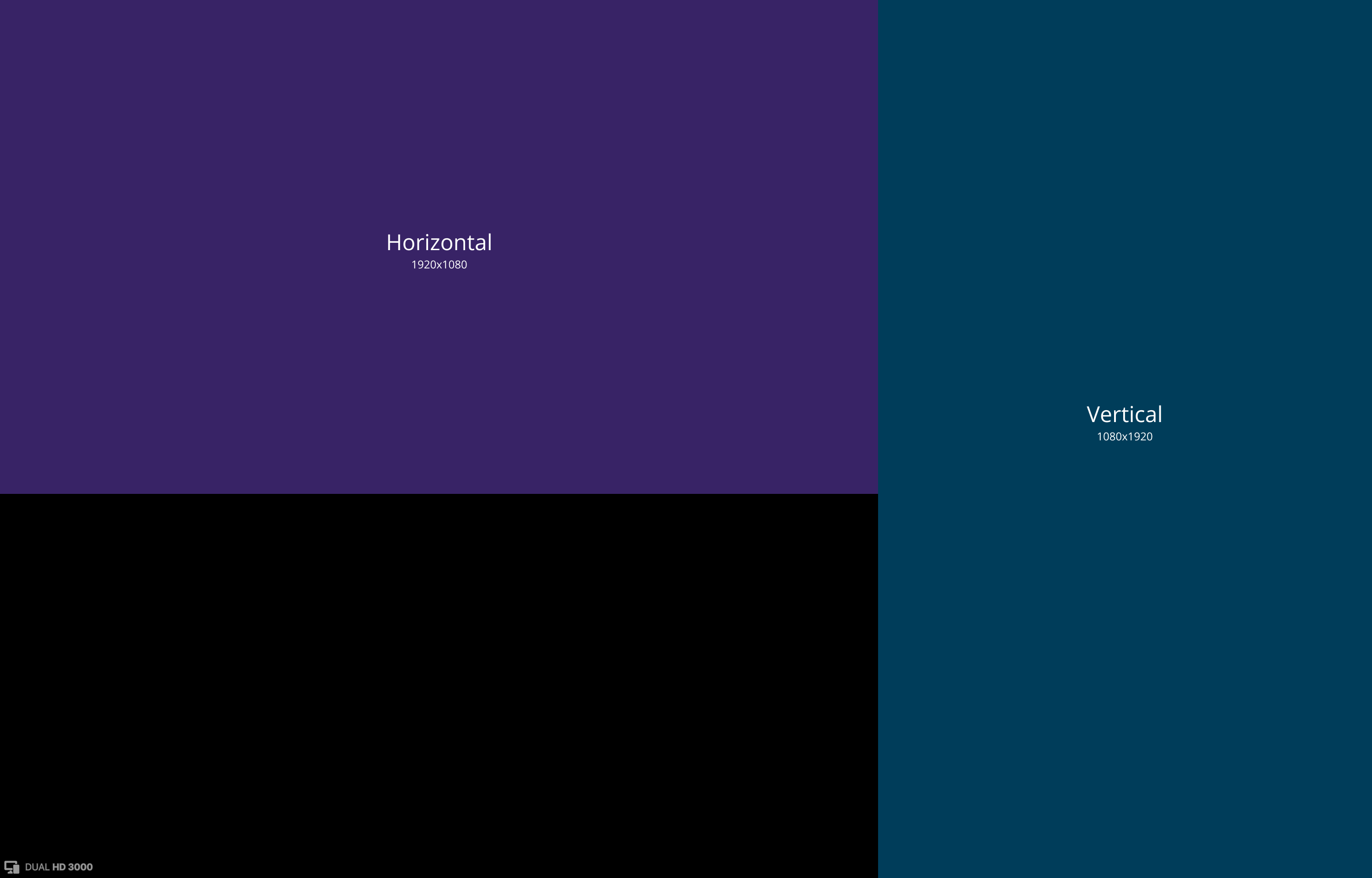
Dual HD 4920
Video formats: 4k horizontal, 1080p vertical.
- Frame size (w, h): 4920x2160
- Horizontal video
- Size (w, h): 3840x2160
- Position (x, y): 0, 0
- Vertical video
- Size (w, h): 1080x1920
- Position (x, y): 3840, 0
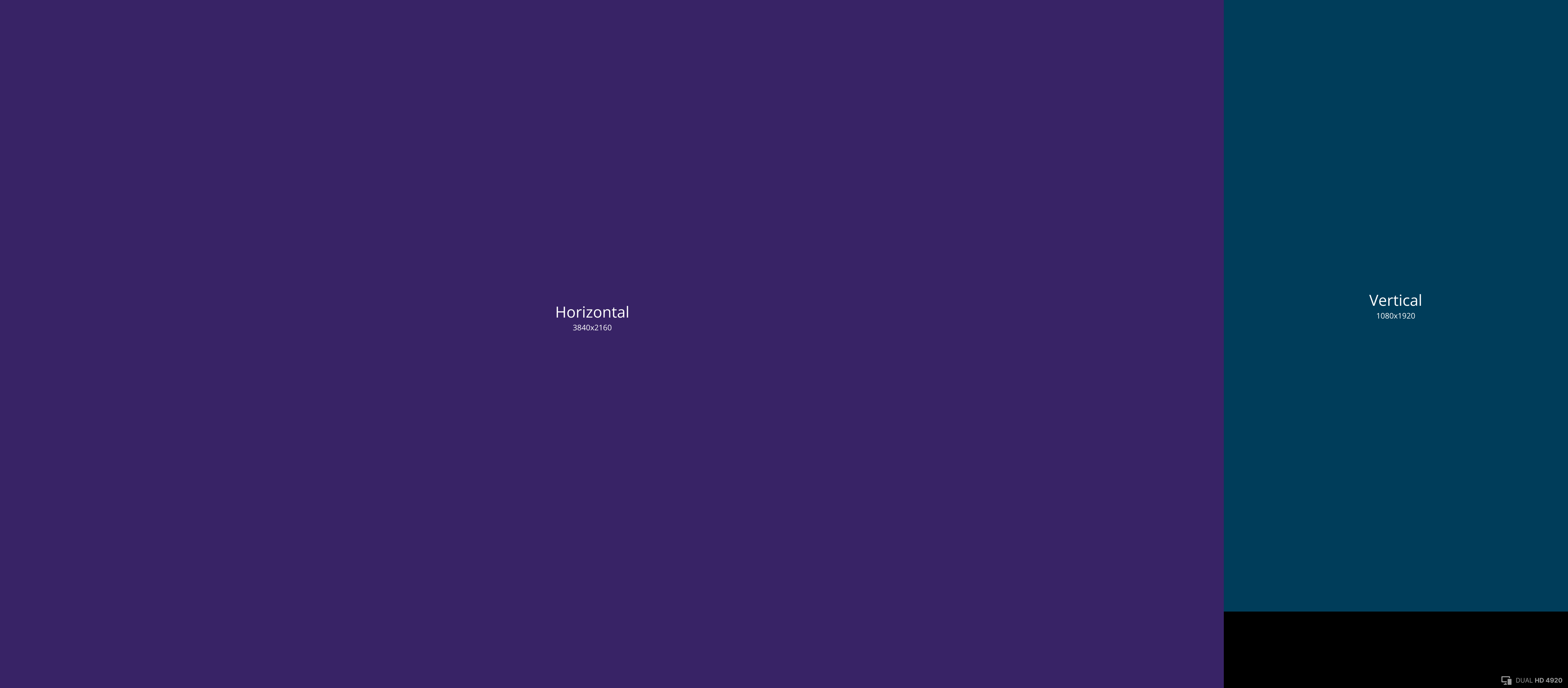
Broadcasting configuration example
OBS with Dual HD 2640
1. Adjust OBS Settings- Video -> Base (Canvas) Resolution: 2640x1280
- Video -> Output (Scaled) Resolution: 2640x1280
- Output -> Rescale output: Disabled
2. Add an Image source to your OBS canvas with the Dual HD 2640 template. Build your horizontal and vertical layouts directly on top of this template.
If your computer's processing power or bandwidth isn't sufficient for streaming at 2640x1280, select a smaller Dual HD resolution or downscale the output, provided the receiving service supports scaled Dual HD. For ecample, scaled resolution can be 1848x896, which retains 70% of the original width and height.
Paltform support
Streamrun supports Dual HD for production use, making it possible to multistream in both landscape and portrait formats at the same time. With Dual Format Streaming, creators can reach a wider audience without compromising viewer experience.
» For more information, visit the Streamrun help center article on Dual Format Streaming.
» For more information, visit the Twitch help center article on Dual Format Streaming.
Example of Dual HD video processing
Transcoding with FFmpeg
Dual HD 2640 video can be split into two destinations with the following command:
ffmpeg -i dualhd2640.mp4 \
-filter_complex "[0:v]crop=1920:1080:0:0[horizontal]; [0:v]crop=720:1280:1920:0[vertical]" \
-map "[horizontal]" -c:v libx264 -preset veryfast -c:a copy fullhd_horizontal_output.mp4 \
-map "[vertical]" -c:v libx264 -preset veryfast -c:a copy 720p_vertical_output.mp4
See example implementation of a Dual HD server on GitHub.
Dual HD buttons
Download buttons and link back to dualhd.org to support us - thank you!

